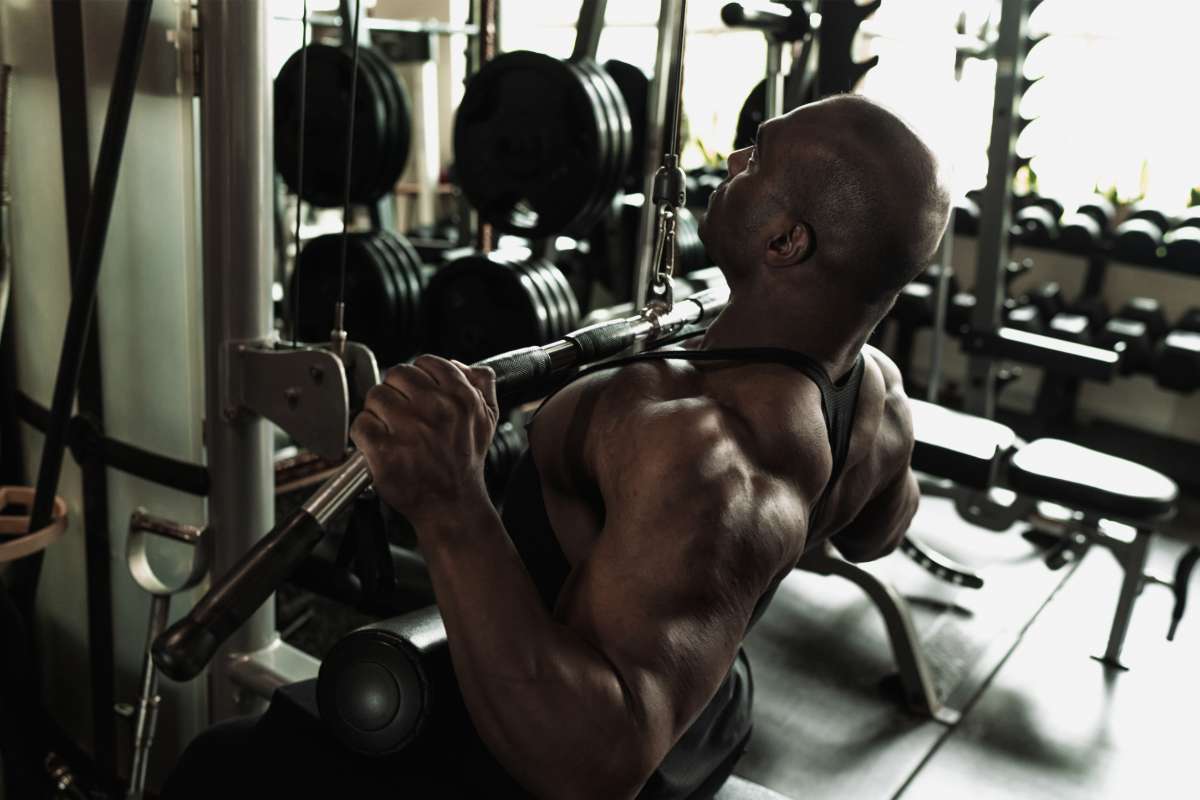Specialization Splits
Even with a solid training program, most lifters hit this wall eventually:
Your chest is popping, your back’s thick, but your arms? Not keeping up. Or your delts are flat while your legs dominate.
That’s where specialization training splits come in — a focused strategy to prioritize weak points, build a balanced physique without sacrificing overall progress.
In this article, you’ll learn:
- What a specialization split is and how it works
- When to use it (and when not to)
- The best ways to structure a specialization block
- Sample 4–6 week programs
- How to progress without overtraining
What Is a Specialization Split?
A specialization split is a focused training cycle where you:
- Train 1–2 muscle groups more frequently and with more volume
- Train the rest of the body with maintenance volume
- Do this for 4–6 weeks at a time
It’s not a forever program — it’s a targeted hypertrophy phase designed to force growth where you need it most.
Why Specialization Works
Muscle growth is driven by:
- Mechanical tension
- Volume
- Recovery
- Frequency
But the body has limited recovery capacity. Trying to grow everything at once is like shouting at 10 people — no one hears you.
Specialization is like walking up to one muscle group and yelling: “Grow now.”
Who Should Use a Specialization Split?
✅ Intermediate to Advanced Lifters
You’ve built a base and want to sculpt a proportionate physique.
✅ Lifters With Clear Lagging Parts
Arms behind chest? Rear delts invisible? Calves a joke? Specialization can fix it.
✅ Physique Athletes or Bodybuilders
Stage aesthetics demand balance and symmetry — not just size.
✅ People Stuck on a Plateau
If a muscle hasn’t progressed in 2+ training blocks, give it more attention.

Who Should Not Specialize (Yet)
- Beginners — You need total-body growth first
- Inconsistent lifters — Specialization requires structure
- Lifters in deep cuts — You can’t drive growth in a deficit with poor recovery
How to Structure a Specialization Split
🔁 Weekly Frequency Model
| Muscle Group | Frequency |
| Specialization Target | 3x/week |
| Secondary Areas | 2x/week |
| Maintenance Areas | 1x/week |
Example: Arm Specialization Split (5-Day)
| Day | Focus |
| Mon | Arms + Chest (light) |
| Tue | Back + Rear Delts |
| Wed | Rest |
| Thu | Arms + Shoulders |
| Fri | Legs (maintenance) |
| Sat | Arms + Upper Back |
| Sun | Rest |
Example: Back Specialization Split (4-Day)
| Day | Focus |
| Mon | Back (Heavy) + Biceps |
| Tue | Chest + Triceps (light) |
| Thu | Back (Volume) + Rear Delts |
| Sat | Legs + Back Finishers |
Volume Guidelines:
- Specialized Muscle Group: 16–24 sets/week
- Other Muscles: 6–10 sets/week (enough to maintain)
Cycle intensity and volume:
- Week 1–2: Volume ramp up
- Week 3–4: Peak intensity
- Week 5: Slight deload or rep/weight variation
- Week 6: Deload or transition to next block
Sample Arm Specialization Workouts
🔹 Day 1 – Arms (Push Emphasis)
- Close-Grip Bench Press – 4 x 8
- Barbell Curl – 4 x 10
- Skullcrushers – 3 x 12
- Incline Dumbbell Curl – 3 x 12
- Rope Pushdown – 3 x 15
- Wrist Curl – 2 x 20
🔹 Day 2 – Arms (Pull Emphasis)
- EZ-Bar Curl – 4 x 10
- Overhead Cable Extension – 4 x 12
- Dumbbell Hammer Curl – 3 x 10
- V-Bar Pushdown – 3 x 15
- Zottman Curl – 3 x 12
- Reverse Curl – 2 x 20
Progression Tips for Specialization
✅ Progressive Overload Still Rules
Track your sets. Beat your reps. Add weight weekly.
✅ Use Strategic Intensity Methods:
- Supersets
- Rest-pause sets
- Drop sets
- Slow negatives
But don’t abuse them. Save the grinders for final sets.
✅ Rotate Secondary Exercises
Keep core lifts consistent for 4–6 weeks
Change accessory angles every 2–3 weeks
Nutrition and Recovery for Specialization
Specialization = more stimulus = more recovery demand.
- Calories: At least maintenance, ideally a 200–300 kcal surplus
- Protein: 1.0–1.2g per lb of bodyweight
- Sleep: 7–9 hours/night
- Stress management: Cortisol kills gains
When to Stop or Switch Focus
Signs your specialization phase is done:
- You’re no longer progressing in reps/weight
- The muscle has caught up visually or measurably
- You’re mentally burnt out
- You’re about to enter a cutting phase
Then:
- Deload
- Switch to a balanced routine
- Start a new specialization (e.g., back, shoulders)
Common Specialization Split Mistakes
❌ Trying to Specialize in 3+ Areas at Once
You can’t specialize everything — or you’re specializing nothing.
✅ Pick 1–2 areas max.
❌ Not Eating Enough
You’re training a muscle 3x/week — fuel it. This isn’t the time for low-carb dieting or excessive cardio.
❌ Ignoring Rest of the Body
Maintenance doesn’t mean ignoring. Train other muscles with focus and effort — just less volume.
❌ Abandoning Progress Tracking
If you’re not tracking sets, weights, and reps — how do you know the specialization is working?
✅ Log everything. Adjust weekly.
Final Word: Fix Your Weak Points — Don’t Just Wish They’d Grow
If you’ve been spinning your wheels with a lagging muscle group, stop doing what’s not working.
Specialization splits give you the frequency, focus, and recovery space to finally bring up your weak points and balance your physique.
Pick your lagging muscle. Structure your week. Push hard for 4–6 weeks. Then assess, adjust, and evolve.




